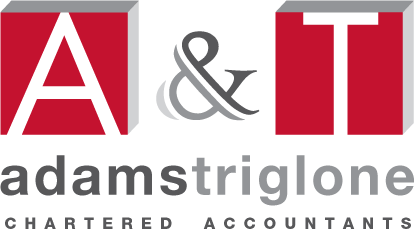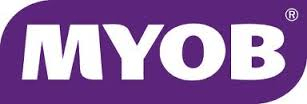Fees disputes and document ownership
Please find below exerts taken from the Chartered Accountants Australia & New Zealand website detailing our industry standard methods for reducing and dealing with disputes regarding either our service fees or document ownership. More information about this can be found on the Chartered Accountants website www.charteredaccountantsanz.com.
Key Points
* Reduce the risk of a fee dispute by managing client expectations regarding the scope, timing and cost of an engagement letter
* Where a dispute arises and negotiations with the client have failed you may wish to pursue a legal remedy, including a right of lien
* You should ensure a legal right of lien exists over documents held before withholding documents belonging to a client
Professional obligations
A fee dispute may arise, for example, when a client challenges your bill/insists on itemised accounts/complains that the bill is higher than expected for the engagement/takes their work to another accountant without paying for work completed.
Fee disputes and how to minimise the risk that you won't be paid for your work
The most effective way of reducing the risk of fee disputes is by managing client expectations regarding the scope of work to be done, the timing and cost of that work.
APES 305 – Terms of Engagement requires members to document the terms of an engagement and communicate these to the client. The basis of fees and billing schedules are some of the matters recommended for inclusion.
Before undertaking an engagement, Regulation CR 3.16 in Public Practice Regulations requires that a client must be advised of the basis on which the fees will be charged and the billing arrangements which will apply to the engagement. The client must also be advised without delay if there are any changes to these fees or billing arrangements during the course of the engagement.
Under APES 110 Code of Ethics for Professional Accountants Section 240, members should consider any threat to fundamental principles of Integrity, Objectivity, Professional Competence and Due Care, Confidentiality and Professional Behaviour, which could arise in relation to quoted fees. For example, the fee quoted may be so low that the required technical and professional standards cannot be applied to the engagement.
These requirements establish a basic approach to managing client expectations and provide support to members when they are challenged by their clients.
While there is no set schedule of fees for accounting engagements, an itemised statement of account, recommended in Guidance Note G1 – Fees, enables the client to clearly understand the costs that they have incurred for the engagement. If requested by the client, an itemised statement of account must be provided under Section 101 of the Australian Consumer Law.
Guidance Note G1 – Fees also recommends that should the fee be greater than that expected by the client it should be discussed prior to billing, and the client's bills should set out sufficient detail to provide certainty regarding the services charged.
Fee disputes
Many fee disputes can be resolved through negotiation with the client. However, if a client has refused to pay for work already completed, do you undertake further work to complete the engagement?
This will depend on what services you have agreed to provide in the engagement document or what services are implied to be provided, in the absence of an explicit agreement.
You should consider whether the withdrawal of services, prior to completion of the engagement, could be interpreted as a breach of contract if the outstanding services form part of the overall engagement deliverables. This could make it more difficult to recover the outstanding fees. The engagement documentation could clarify both your own and the client's responsibilities should this situation arise.
Liens
When a fee dispute arises, a member may be entitled to retain possession of over certain books and records of the client until fees have been paid. You should consider including in the engagement documentation the circumstances under which a lien may be exercised and the documents to which it may be applied.
A lien is a legal right and G1 – Fees and Guidance Note N1 – Books and Records points out that legal advice should be obtained before seeking to exercise a lien.
Although a lien is a convenient method for extracting outstanding fees from a client, it is not always the most effective way of resolving a fee dispute. Many of the complaints received by CA ANZ relate to the inappropriate withholding of documents by members. This has the potential to bring the member and the profession into disrepute and a lien should only be used when other efforts to resolve the dispute have been exhausted.
Alternative options for recovering fees such as mediation, arbitration or civil actions should be considered. Members are reminded that the CA ANZ Dispute Resolution Toolkit is available to assist members in public practice to meet their obligations under Regulation CR 3.18 to establish policies and procedures to deal with complaints.
Ownership of documents
A lien can only effectively be taken over documents which belong to the client who owes the outstanding fees. The question of ownership is not necessarily straightforward. Guidance Note N1 – Books and papers: Ownership, Possession and Disclosure outlines the legal framework regarding whether Books and Papers are owned by the client or the member.
For comparative purposes, consider this extensive discussion of case law relating to the ownership of documents on a solicitor's file provided in the blog of Stephen Warne, Barrister.
Determining the ownership of documents will depend on the circumstances in each case in relation to:
* Whether the member is acting as an agent for the client or as a principal
* The purpose for which the documents and records have been brought into existence
* The contract or agreement between the member and client
The contract or engagement documentation may specifically deal with the issue of ownership of relevant documents. If the engagement documentation or agreements makes no reference to ownership, the general rule is that those documents which have been prepared on the instructions of the client belong to the client.
Where an accountant is preparing documents on the instructions of the client he is generally acting as an agent of that client.
However, documents which are prepared, produced or acquired by the member solely for his own purposes generally belong to the member. An accountant is generally acting as a principal when providing an opinion or professional advice to a client.
The Guidance Note N1 discussion of the ownership of documents in relation to different types of engagements is summarised below.
| Type of engagement | Member is Principal/agent | Owned by client | Owned by member |
|---|---|---|---|
| Audit* | Principal | Audit report | Audit workpapers |
| Tax – compliance | Agent | Tax returns, accounts, schedules, computations | |
| Tax – advice | Principal | Letters of advice | Drafts, memoranda, notes, correspondence with solicitors |
| Accountancy – Company | Generally acting as agent | Financial records, required by s.286 of Corporations Law | |
| Accountancy – Ownership stipulated in contract | Ownership determined on the basis of contractual agreement | Those documents which the contract refers to as belonging to the client | Those documents which the contract refers to as belonging to the member |
| Accountancy – Ownership not stipulated in contract | Generally acting as agent | Documents which member has agreed to prepare as part of the engagement eg financial statements, books of account | Drafts, office copies prepared in the course of preparing final documents |
| Final accounts | |||
| Accountancy – Contract to produce final accounts from incomplete records | Generally acting as agent | Schedules and computations |
- See Chantrey Martin (A Firm) v Martin [1953] 3 WLR 459; [1953] 2 QB 286
Exercise a lien
A lien can be either a general or a particular lien. A particular lien is a legal right to retain particular documents as security against a debt. Accountants may only exercise a particular lien in the following circumstances:
1) Where the documents retained are the property of the client who owes the money
Care must be taken where services are provided to related individuals and entities that only those documents belonging to the individual/entity which has the outstanding fees are retained.
2) Where the documents have come into the possession of the accountant by proper means
The documents must have been provided by the client and not have been received error.
3) Where work has been done by the member on or in producing the documents
The documents retained should be ones which the member has created or to which value has been added.
4) Where the fee outstanding relates to such work and not to other unrelated work
Documents retained must not relate to work from a prior period and/or for which the client has already paid.
5) Situations where a lien cannot be exercised or will be defeated
Possession
Where the documents over which a lien is claimed are provided to the client or a third part, the member has lost possession and the lien is generally lost. This is not the case where documents are produced to ASIC pursuant to the Commission's order or search warrant, where the lien is preserved by the statutory provision.
Documents produced pursuant to a special investigation by ASIC do not enjoy the same immunity but on a case by case basis the lien may be preserved.
Accounting records and statutory books of Companies
A lien cannot be exercised over any of the books or documents of a registered company which must be available for public inspection or must be kept at the registered office.
These include the register of members and directors' minutes books as well as financial records required by s.286 of the Corporations Act. These financial records are defined in s. 9 as including:
· Invoices, receipts, order for the payment of money, bills of exchange, cheques, promissory notes and vouchers and
· Documents of prime entry and
· Working papers and other documents needed to explain:
- The methods by which financial statements are made up; and
- Adjustments to be made in preparing financial statements
Bankruptcy, Receivers and Liquidators
A lien cannot be taken over the documents of a bankrupt but must be surrendered to the trustee in bankruptcy on request.
The appointment of a receiver to any or all of a company's assets should not affect the existence of a lien unless, in the case of a court appointment, the court orders otherwise.
The appointment of a liquidator should not affect an existing lien. However no lien can be taken over documents which have come into the possession of a member after the commencement of the liquidation.
Liability limited by a scheme approved under Professional Standards legislation.




